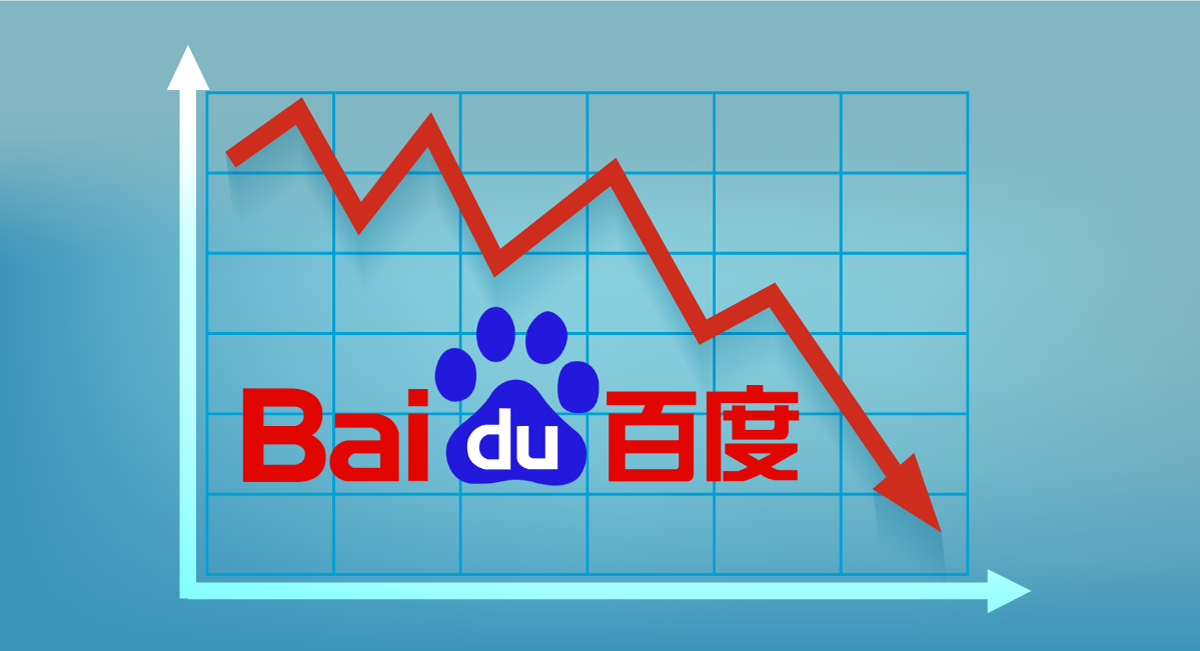Baidu saw a fast and steady decline of its stock price over the course of 2018, from 254.14 USD on the 25th of January 2018 to 162.7 USD on the 24th of January 2019.
How to explain this 36% decline in stock price?
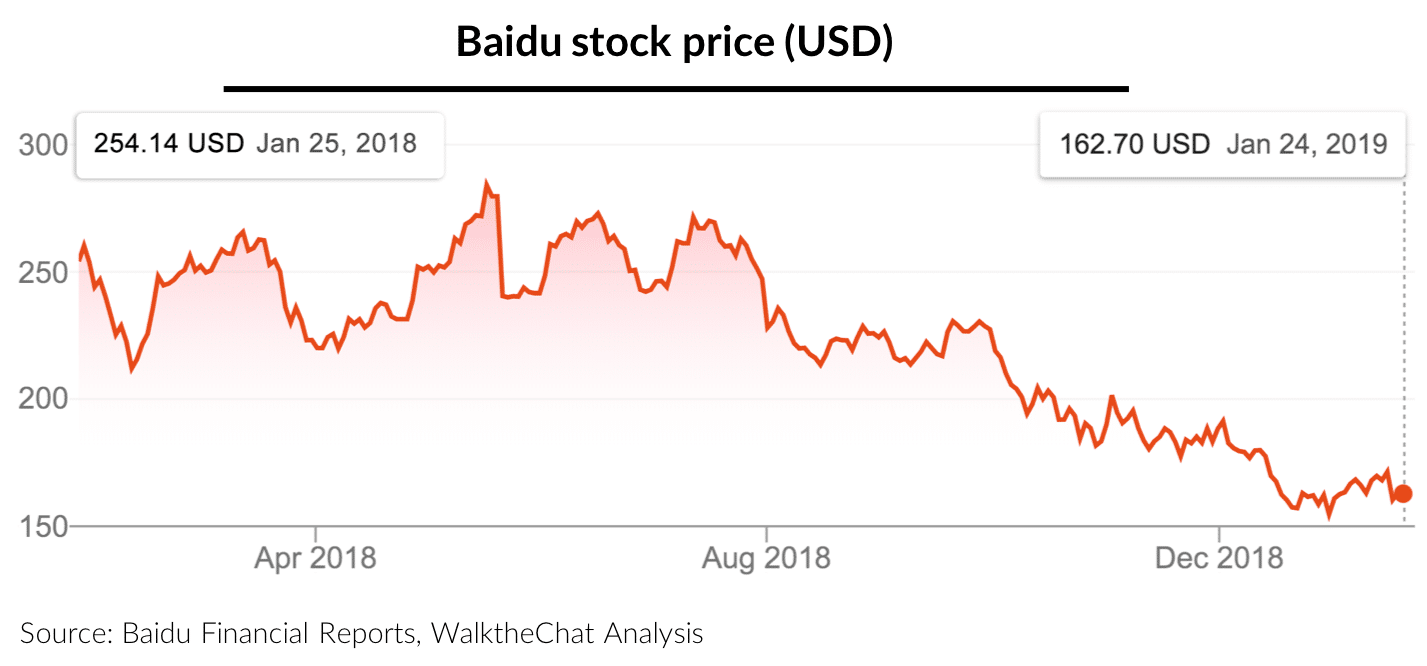
What is causing the fall?
What is causing this drop in share price? Baidu has been subject to intense criticism in 2016 following a scandal over medical services advertising. Baidu’s mobile search market share is also affected by the dominance of WeChat and Toutiao Apps, and by the fact that Chinese users tend to make requests directly in the relevant platform (Tmall, JD.com, Dazhong Dianping) rather than using serarch engines.
However, there might be another more simple cause to Baidu’s downfall: they are delivering poor search results.
More precisely, Baidu tends to be promoting its own services (Baidu Baike, a knowledge sharing platform, and Baidu Baijiahao, a content platform) in a way which is impeding user experience.
The search for “Obama” on Baidu, for instance, results into a vast majority of results from Baidu Baike and Baidu Baijiahao.
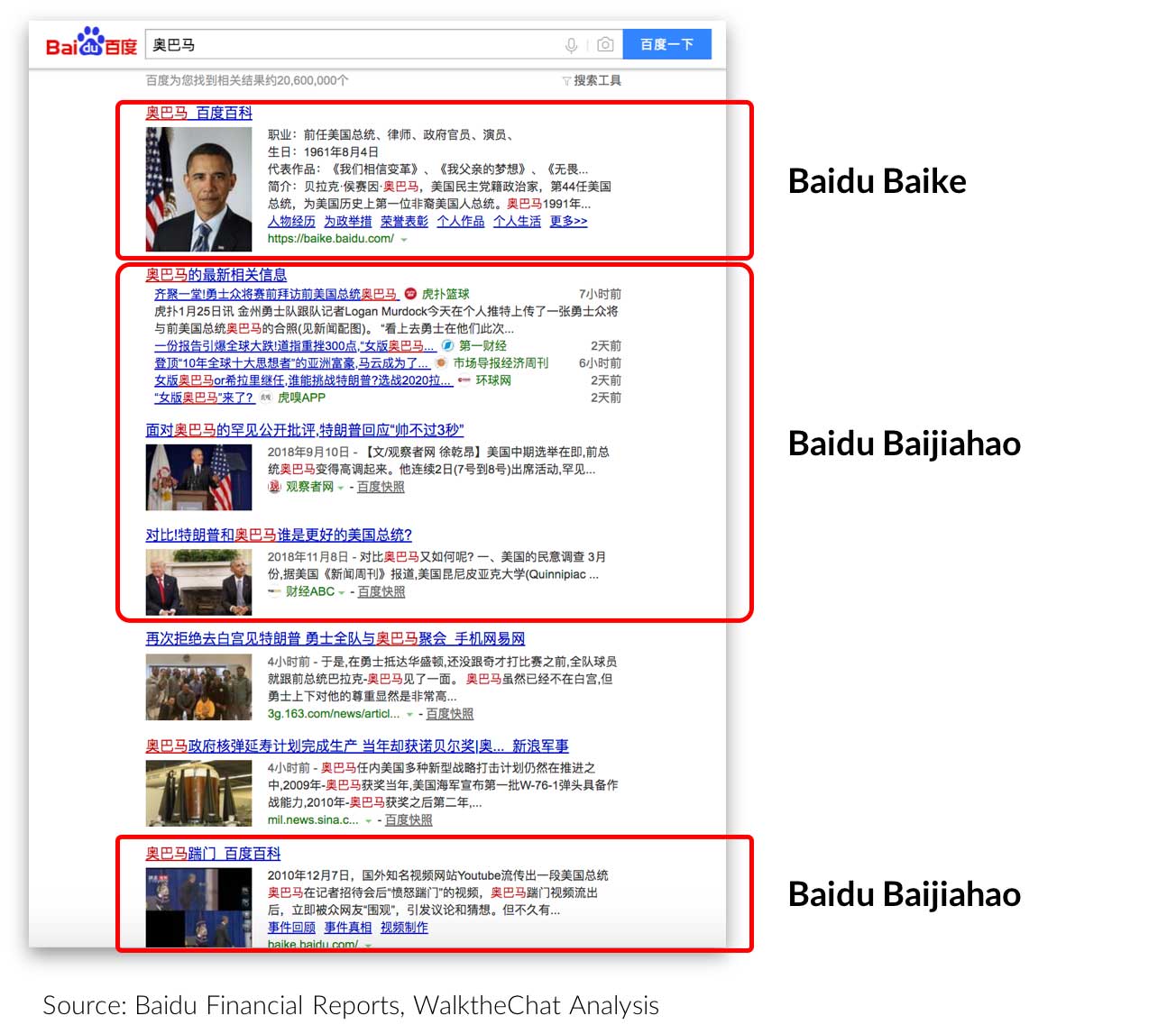
This week an article titled “Baidu search engine is dead” went viral on social media, accusing Baidu of unfairly driving traffic to its own ecosystem Baidu Baijiahao. Baidu announced that only 10% of search traffic goes to Baijiahao. However, Baidu failed to mention the percentage of Baijiahao content on the first page.
The lack of credibility of results eroded users trust in Baidu, and eventually caused a decline in daily active users.
Spreading fake news
This situation could be deemed acceptable if Baidu Baijiahao was a reputable content source. The problem is that it used to be, but is no longer so.
Blogger Fang Kecheng (方可成) reported that Baijiahao, for instance, spread satirical news from The Onion website claiming that the C.I.A issued a posthumous apology after finding evidence that cleared Osama Bin Landon of involvement in 9/11 attacks. Of course Baijiahao didn’t specify that the news was fake.

The news reached more than 400,000 views before it was taken down.
The struggle to build a narrative of success
Baidu is trying very hard to build a narrative of a company which is pivoting from search into Artificial Intelligence (A.I).
The problem? Search is actually based on A.I, and Baidu is failing at it.
Instead, we can read in Baidu’s Q3 financial filings that “Baidu received the top award in the 2018 Google AI Open Images-Object Detection Track, a prestigious large-scale object detection global competition, for its use of dynamic sampling network technologies”.
Needless to say that Google wouldn’t pride itself from winning a Baidu competition in its annual report. Google demonstrates its strength in A.I by delivering successful A.I-powered products such as Google Search or Google Assistant, not by winning prizes.
Other initiatives of Baidu seem equally unsuccessful.
The Q3 2018 quarterly report claims that “Baidu’s Smart Mini Programs during pilot testing has been very positive with monthly active users surpassing 100 million in September 2018”. However, nobody seems to be aware of Baidu Mini-programs, and these numbers are likely reflecting inflated data focusing on services operated by Baidu itself.
Baidu’s ex-COO/A.I chief Qi Lu left the company in May 2018 to join Y Combinator. Baidu seems to have a high turnover rate and is constantly undergoing internal restructuring after each major crisis. The political tension within the company is no doubt blocking the company to make great products.
Average financial performance
At first glance, it might seem that Baidu is doing okay, with a YOY growth of 27% of its yearly revenue (with a seasonality due to 11/11 causing a drop of revenue during Q1 of each year)
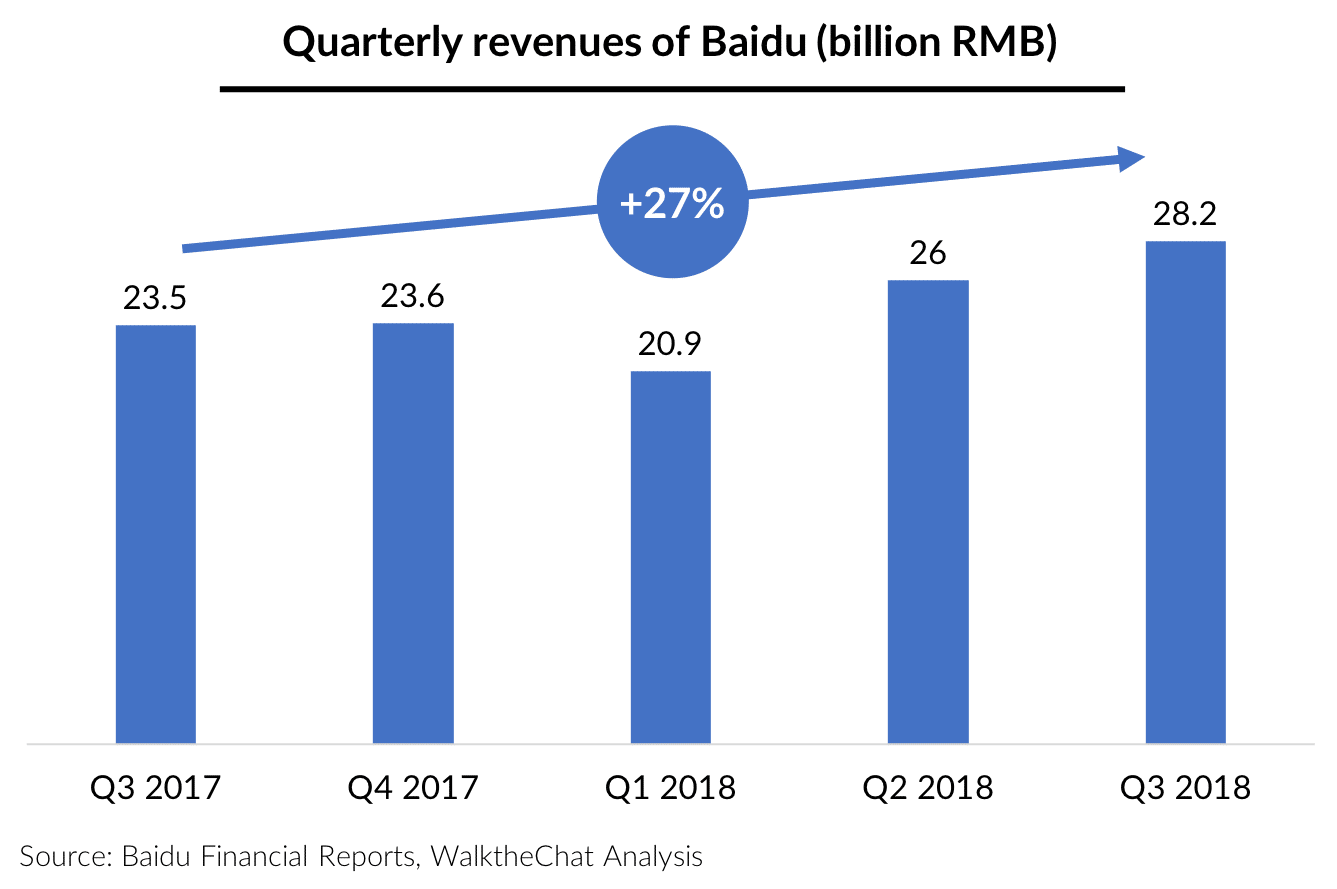
However, these revenues remain modest compared to Baidu’s Western equivalent, Google, which achieved $33.7 billion USD of revenues in Q3 2018.
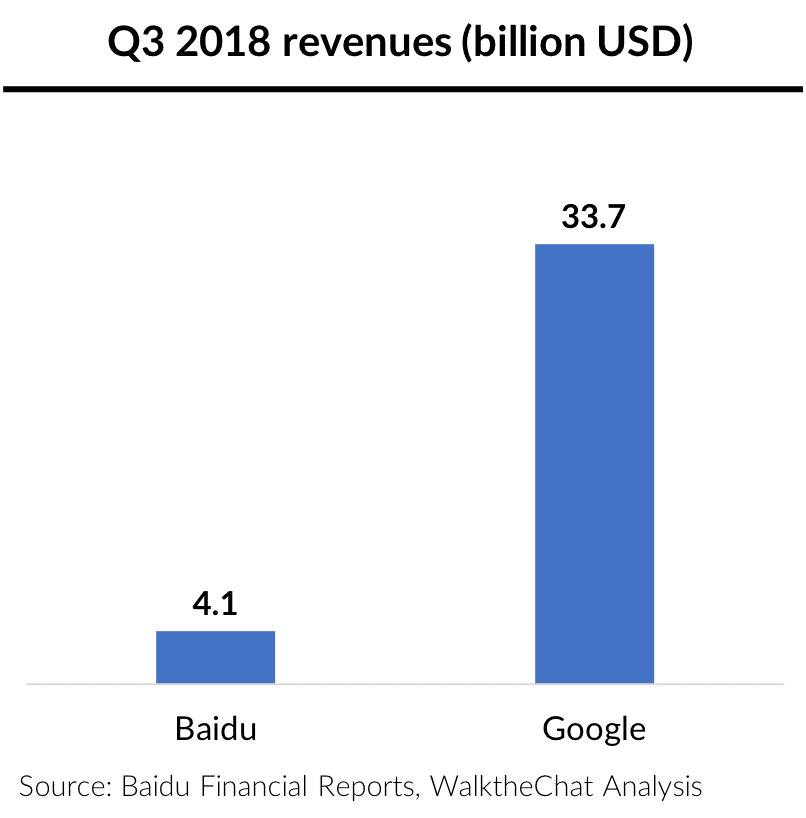
The overall trend also seems worrying for Baidu: the number of mobile users of the Baidu App has been stagnating and even decreasing after a peak in August 2018.
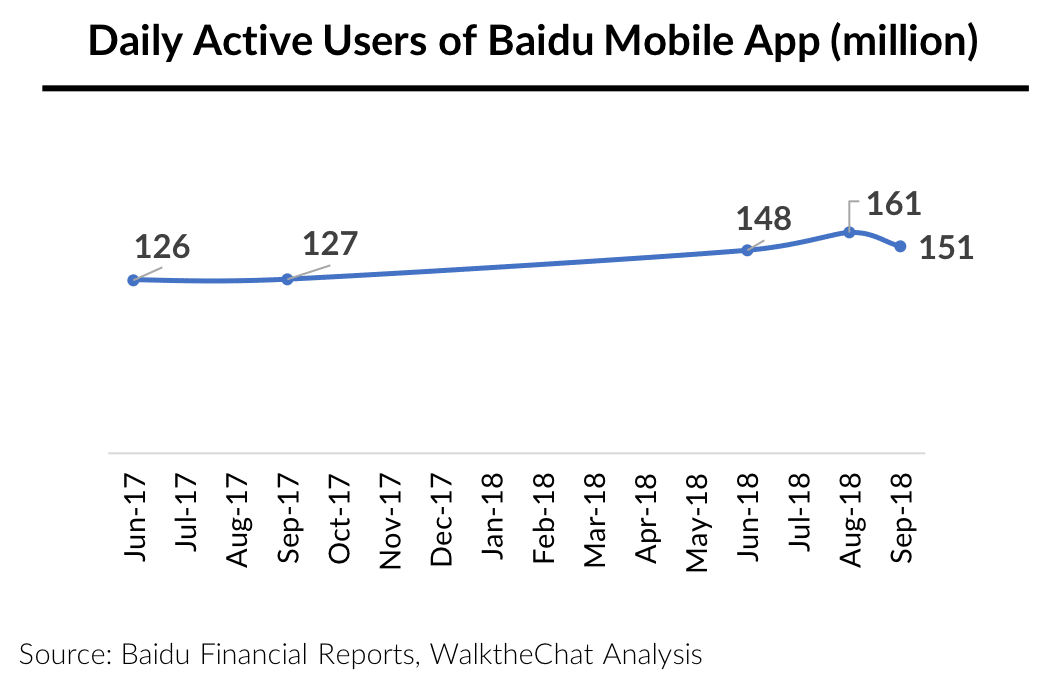
The number of advertisers also have been relatively stagnant after a sharp drop in Q4 2017.
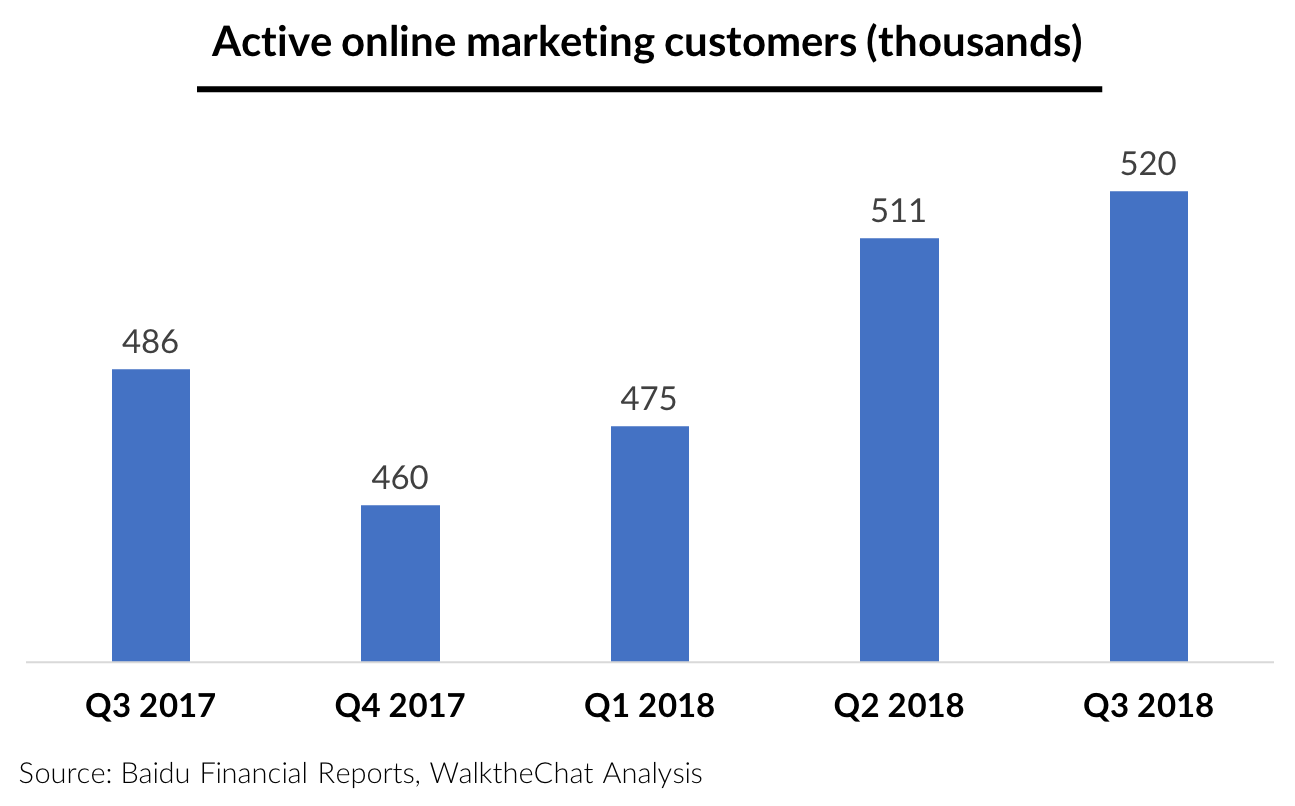
Revenue per advertiser has been also stagnant after a seasonal drop during Q1 2018.
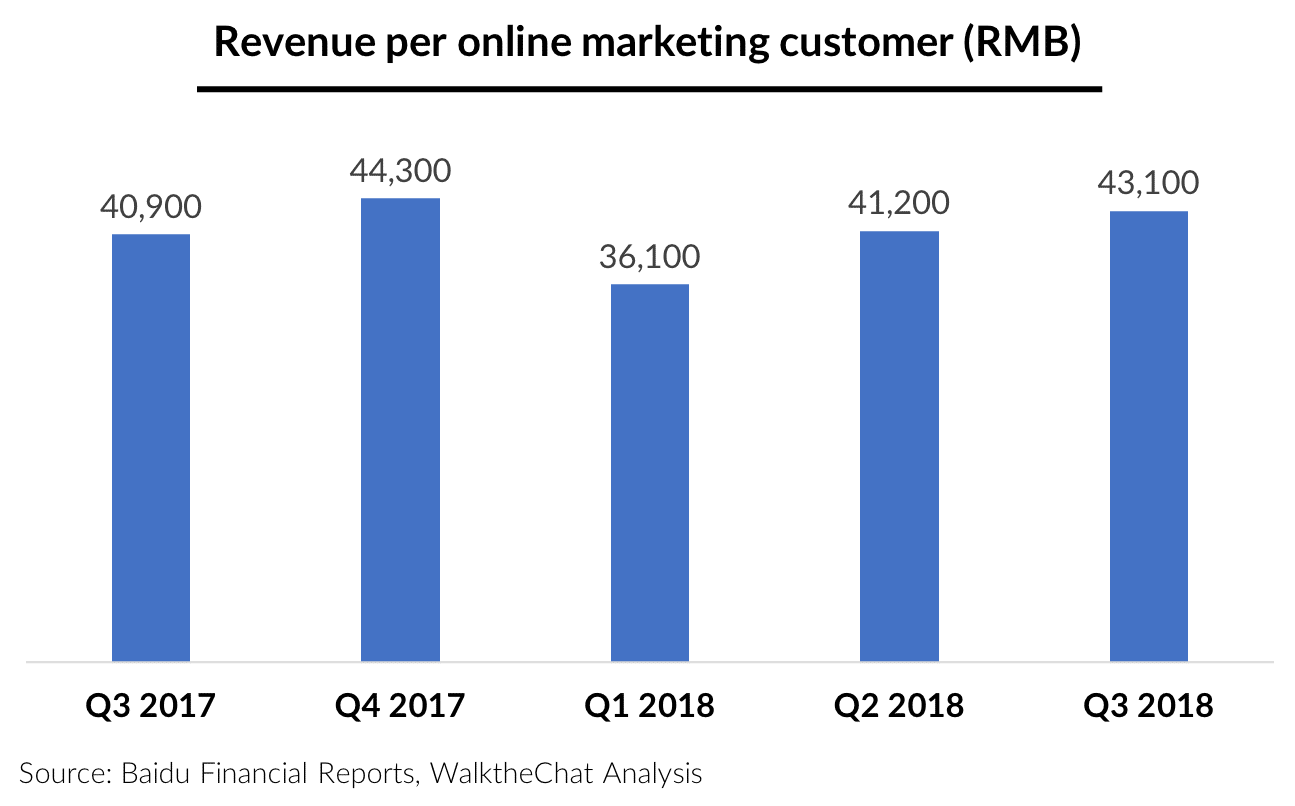
This is especially problematic because even if Baidu diversified itself in other areas such as cloud computing and video, it remains very reliant on advertising revenues.
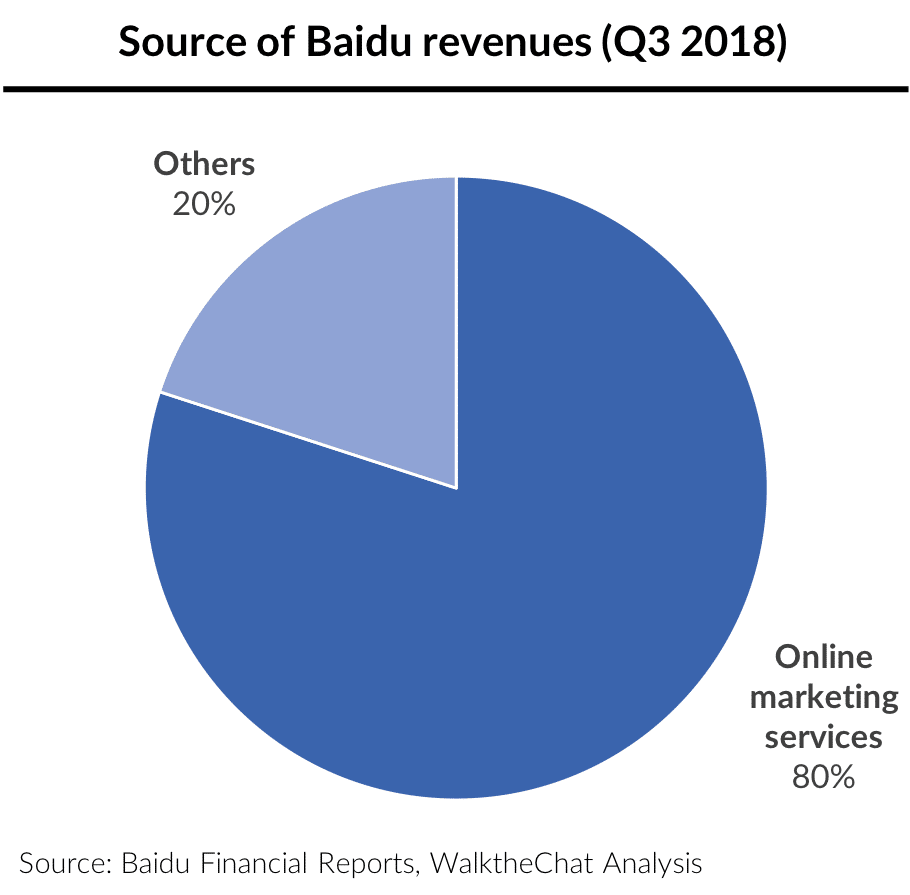
The overall results paint a bleak picture of a company which is likely at the end of its rope when it comes to revenue growth. The downfall in mobile users will almost certainly end up impacting advertising revenues.
Conclusion
By showing little focus on user experience and poor ethics, Baidu seems to be losing the trust of users and a sharp decrease in the engagement that will sooner or later turn into a drop in revenue.
Baidu has been trying hard to come up with a narrative of success around A.I. But these efforts to cover the difficulties of its core business only accentuate the impression of a company which can not be trusted.
Will Baidu manage to make a comeback? It might. But its issues seem to come from its culture as well as its business, and a company’s culture runs deep and is challenging to change.

